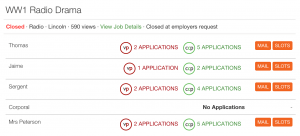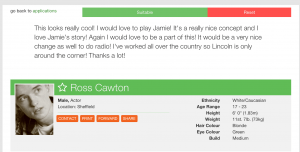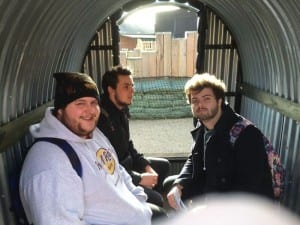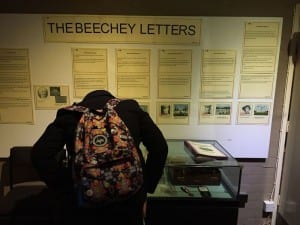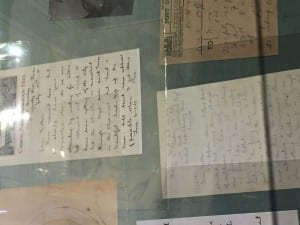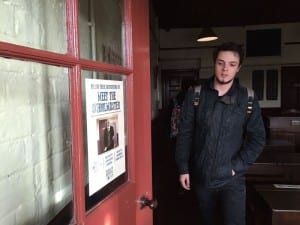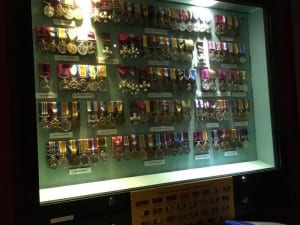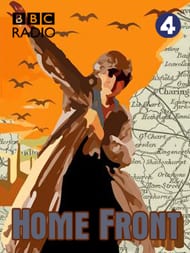This week we made a presentation of our progress which was shown to Zara and Peggy. From this we gained some good and constructive feedback. Peggy encouraged us to continue research throughout the production process which we agree is an important task to keep up with. Research has already stopped us making some errors, for example our Postman character would have more than likely been female rather than male. Although it would have been possible for the character to be played by a male, we felt that the fact that the post service hired 30,000 female staff to replace the men fighting needed referring to in some way.
We also received feedback from our historian. Richard, who is a Lincoln tank historian, seemed to enjoy the script and gave us a few corrections to aid authenticity. Non commissioned officers would not have been referred to as Sir so we corrected this to Corporal. Gas masks were also at this point not operated with straps and were more of a bag that was placed over the head. This among other corrections has helped our script massively and we as a group are glad we talked to Richard.
Lastly, we have arranged to record scene 5 with our actress Dilys Twiggs and our now female Postman, Madeleine Krivonozka. Dilys will be coming from Bristol to come do this part so heavy preperations are being made to ensure this goes as smoothly as possible.
